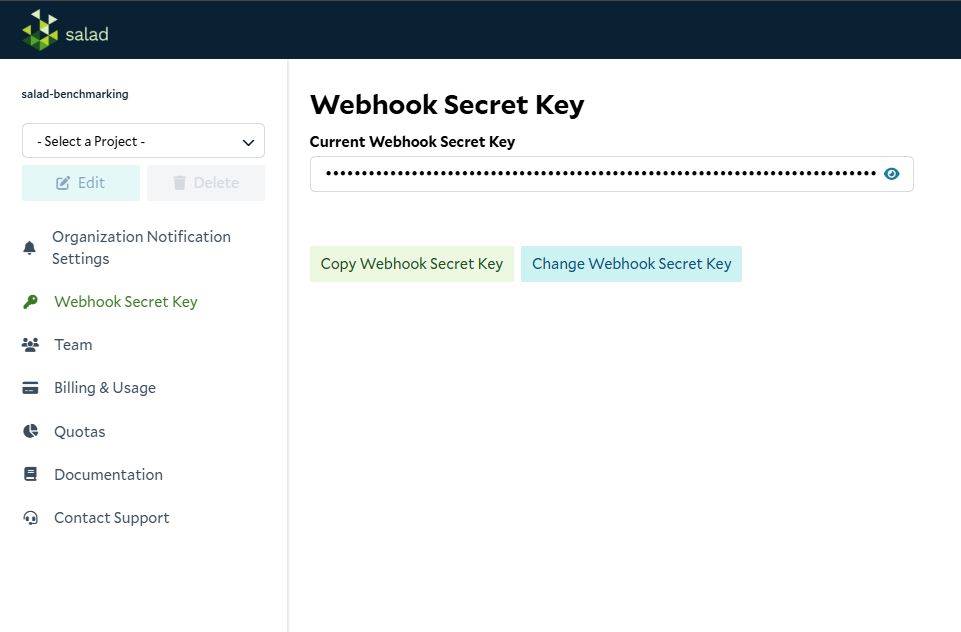Validating Webhook Signatures
When using the Salad Job Queue API, you can set up webhooks to receive the output of your jobs. To ensure the integrity and authenticity of the webhook payloads, you can validate the signatures included in the webhook requests. A webhook request will include headerswebhook-signature, webhook-id and webhook-timestamp, which contains a
signature of the payload. This signature can be validated using your webhook secret key, available in the portal, and
the svix library.

Validating the Signature
Node.js Example
First, installsvix:
Python Example
First, installsvix: